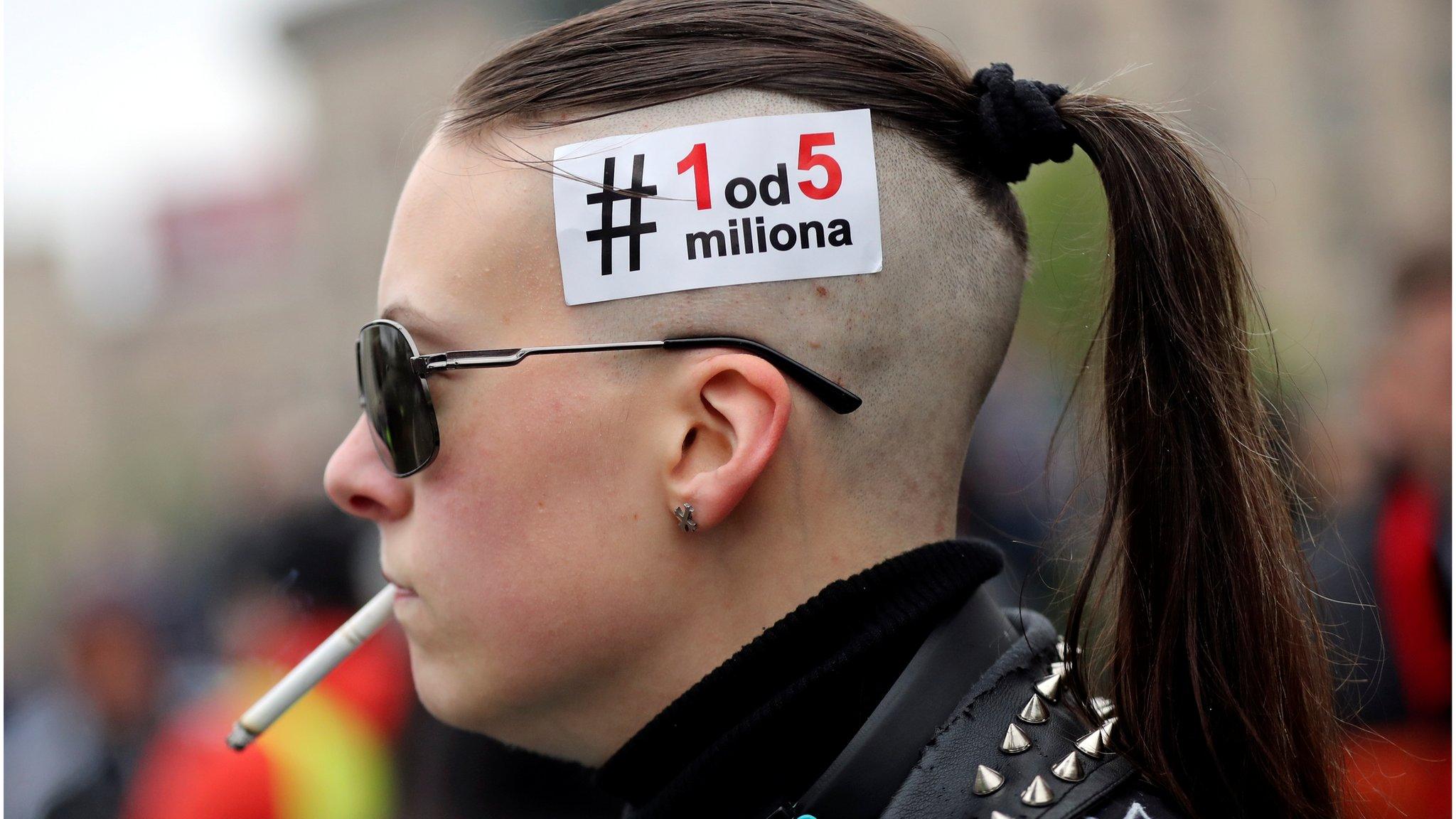Serbia election: Opposition scorns 'hoax' vote in EU candidate state
- Published
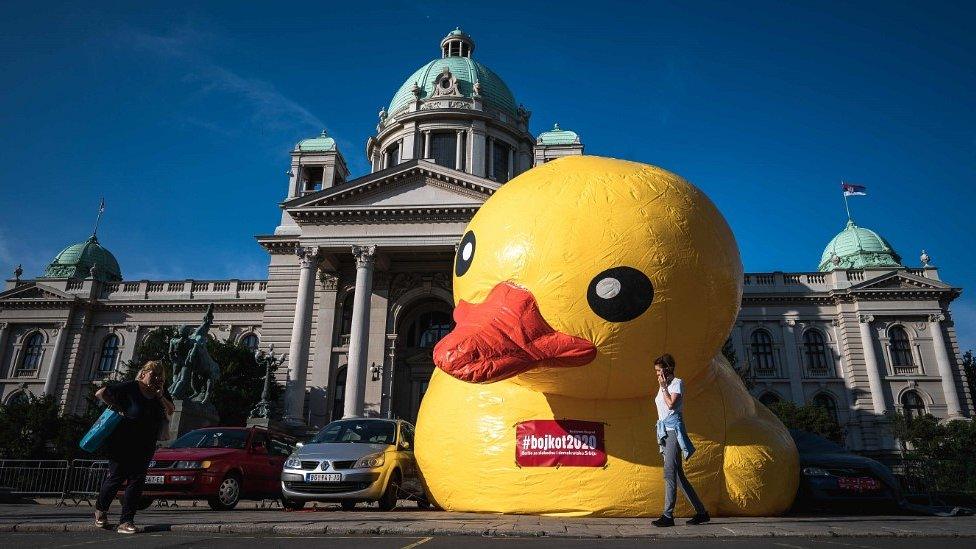
Protest group Don't Let Belgrade Drown placed a giant inflatable duck outside parliament
The disruption from coronavirus is not the only thing Serbia's parliamentary election has in common with the restart of the English Premier League.
An outcome that is beyond serious doubt is the other.
But while Liverpool FC should shortly confirm their first title in 30 years, Aleksandar Vucic would simply be extending a dominant run which already stretches back the best part of a decade.
Serbia's president started his winning run in 2012 - when his Progressive Party (SNS) became the senior partner in a governing coalition. His official title was deputy prime minister, but it was clear from the start that Mr Vucic was running the show.
But despite his successes, the president's past means that a significant proportion of Serbians will never accept him as their leader. Mr Vucic served as information minister in the ruinous regime of Slobodan Milosevic - the president who presided over the violent disintegration of Yugoslavia in the 1990s. His subsequent apologies and conversion to a pro-EU policy cut no ice with critics.
An SNS victory in the 2014 election allowed him to become prime minister. Three years later he moved to the presidency - appointing Ana Brnabic as prime minister, but keeping a firm hold on executive power.
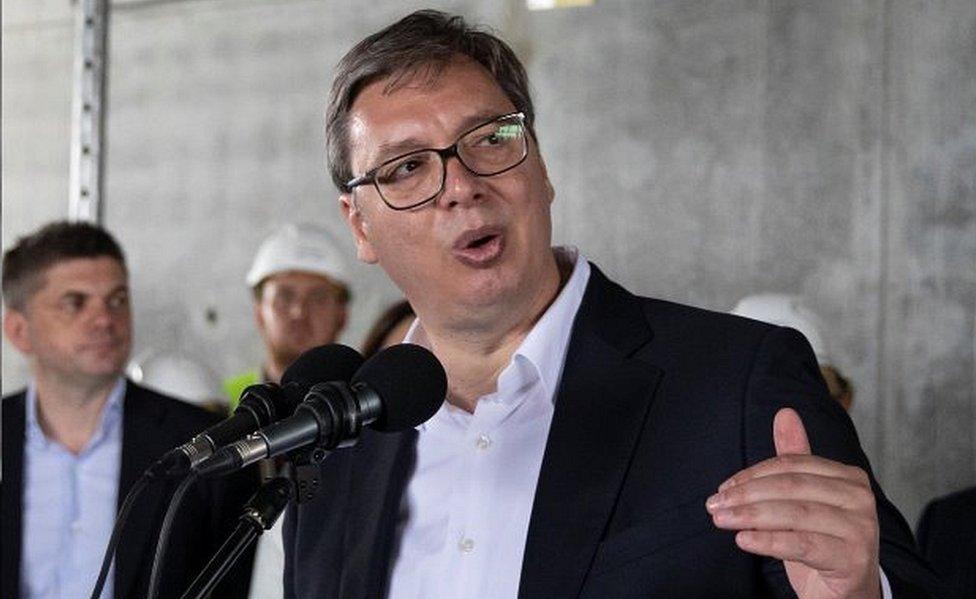
President Vucic has dominated Serbian politics for nearly a decade
Opposition parties claim that Mr Vucic's grip has started to strangle Serbia's young democracy. Many of them are boycotting Sunday's vote because they say conditions for a free and fair election do not exist.
Dragan Djilas, a former mayor of Belgrade who now leads the Party of Freedom and Justice (SSP), has labelled the poll a "hoax vote", saying that SNS dominance of the media means voters cannot "hear something different".
Another opposition activist, Dobrica Veselinovic of Don't Let Belgrade Drown, told the BBC that "unfair conditions" were behind his movement's decision to boycott the election.
He said that "every attempt to open dialogue with the government fails - the institutions don't want to hear what citizens are demanding".
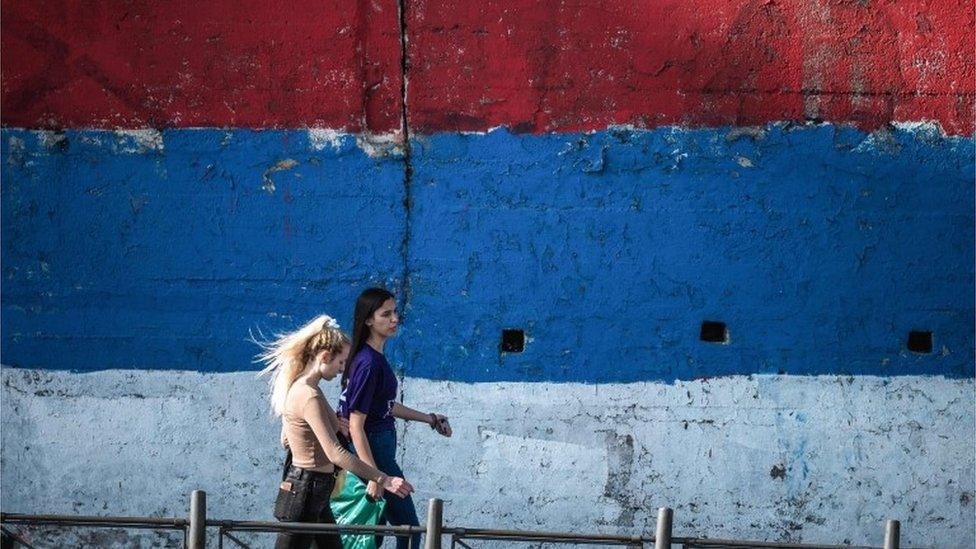
Serbs go to the polls on Sunday
Eric Gordy, a Balkans specialist at University College London, says the partial opposition boycott - and the predictability of the outcome - are damaging to Serbia's democratic credentials.
"The first condition for a democratic election is that more than one result is possible - but with this one, there's no suspense at all," he says.
But Prof Gordy believes the opposition are misguided to believe their boycott will undermine the legitimacy of the election.
"For it to succeed, they would have to have an audience which is interested in legitimacy - either the domestic public or the internationals. But none of them seem to be terribly bothered by legitimacy - and they don't have a lot of faith in the opposition to create greater legitimacy than the party that's ruling now."
Indeed, boycott or no boycott, the political opposition is an incoherent mess.
The Democratic Party (DS) splintered after losing power in 2012, with multiple new parties forming around key figures such as Dragan Djilas and Serbia's former president, Boris Tadic.
It was not an attractive proposition for voters - even before the ostensibly centre-left DS and SSP joined other parties including the far-right nationalists, Dveri, in the "Alliance for Serbia". The boycott means the palatability of this strange arrangement will not be put to the test.
The Alliance also refused to take part in talks mediated by the European Parliament (EP), which aimed to persuade the government to address opposition grievances while heading off a boycott.
Inside the massive protests few people know about
Tanja Fajon, who chairs the EP's delegation for relations with Serbia, told the BBC she regrets the absence of Alliance parties from the ballot.
"It is important that after the elections we ensure there will be a real dialogue in parliament - and we won't get into the situation again when the opposition is on the streets and not working in parliament.
"Serbia is a deeply polarised country - lots of people who are discontent are afraid to express their opinions. If you have a government which is very strong, with very fragmented opposition, it is difficult to have a proper democracy."
President Vucic is not a candidate on Sunday. But the title of the SNS-led candidate list reflects his incomparable status: "Aleksandar Vucic - For Our Children".
Serbia's leader promises "the acceleration of European integration", improving economic conditions and giving young people a reason to stay in the country.
But finding a way to restore confidence in Serbian democracy may be just as important.
- Published22 November 2019
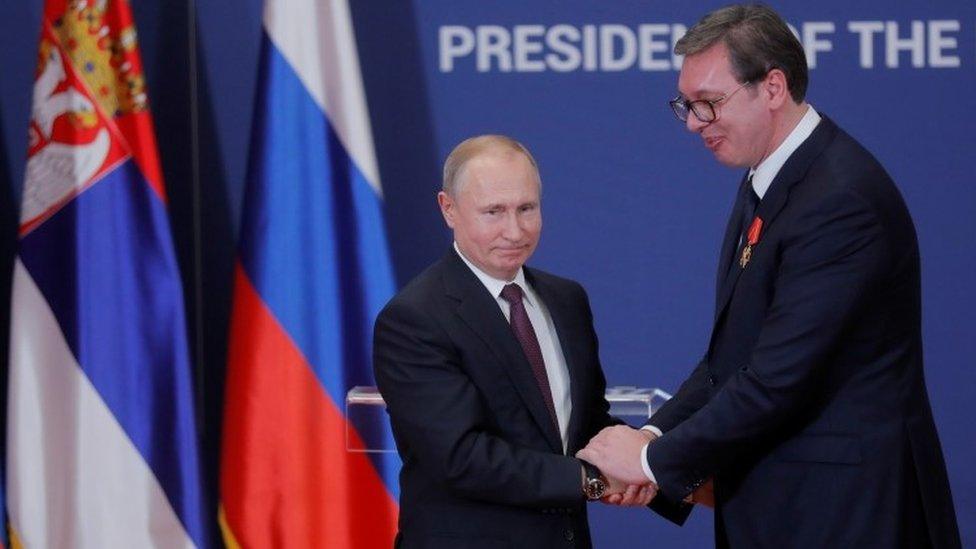
- Published10 October 2018
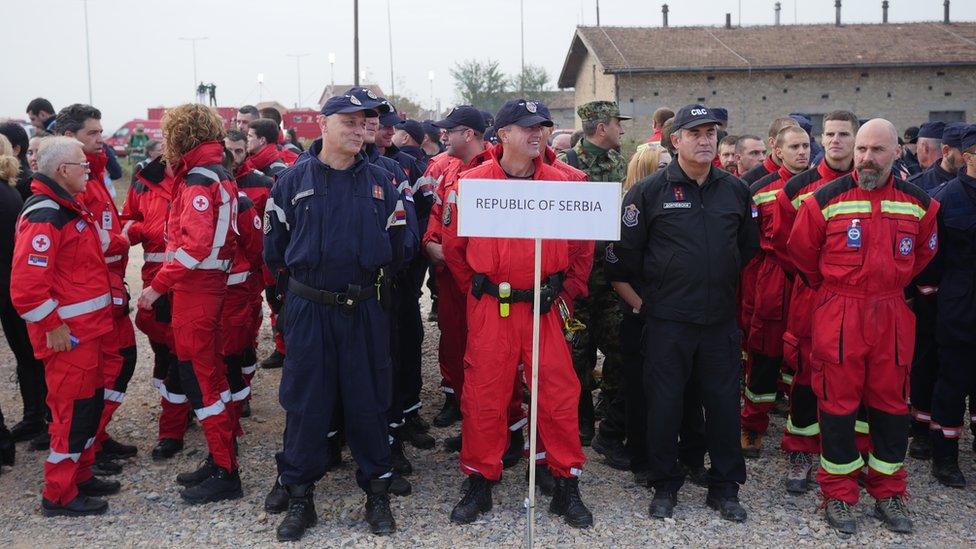
- Published1 June 2019
